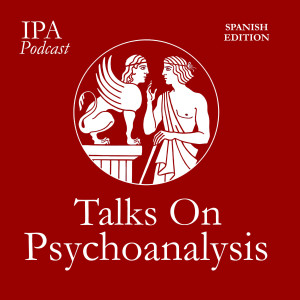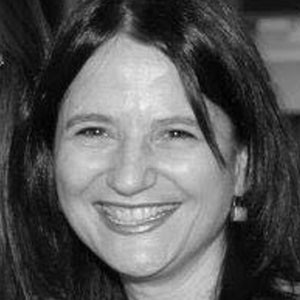Talks On Psychoanalysis
Transference
Episodes

Monday Jan 22, 2024
Monday Jan 22, 2024
What does a psychoanalyst do in his practice with his patients? How can we define the act of the psychoanalyst at work? It is this vast question that Bernard Penot addresses in this podcast, talking about the act of the psychoanalyst in the service of subjectivation. Referring to Freud's work on transference and then to Lacan's work on the psychoanalytical act during the years of student revolts in France in may 1968, he manages to show us the active involvement of the psychoanalyst in the practice of the cures he provides.
Bernard Penot is a french psychoanalyst. He lives and works in Paris. He has been a full member and training analyst of the Paris Psychoanalytical Society since 1990. As neuropsychiatrist, he was the director of a day hospital for adolescents in Paris for many years. He is the author of several books published in french, and of numerous articles published in the French journal of psychoanalysis and the International journal of psychoanalysis.
Link to the paper https://docs.google.com/document/d/1YtXzBF8rEX4-Gpf6tGsajv6-tShQxbwT/edit?usp=sharing&ouid=112457875385152358388&rtpof=true&sd=true
This episode is available also in French
A subtitled version of this podcast is available on our YouTube channel:https://youtube.com/playlist?list=PLhxiwE76e0QaOquX3GujdwNLFsgxUQNXz&si=yf381EDu3pess6Yz
This episode has been produced in collaboration with Julia-Flore Alibert.
This Podcast Series, published by the International Psychoanalytical Association, is part of the activities of the IPA Communication Committee and is produced by the IPA Podcast Editorial Team.
Head of the Podcast Editorial Team: Gaetano Pellegrini.Editing and Post-Production: Massimiliano Guerrieri.
Music: Chopin_Waltzes_Op.69. Performer Olga Gurevich. https://musopen.org/music/4415-waltzes-op-69/
Cover Image: Blue human figure and fox in cage on black paper. Blum, Alexandra, artist - Courtesy Library of Congress. https://hdl.loc.gov/loc.pnp/pp.print

Thursday Dec 14, 2023
Thursday Dec 14, 2023
The place of sexuality in psychoanalytic treatment and training today: Can we observe a disappearance of sexuality in case reports and supervisions?
How does the evolving discourse on sexuality influence psychoanalytic practice and training? In an era where sexual dysphoria is seemingly on the rise, particularly among younger generations, questions arise about the current positioning of Freud's drive theory and the status of sexual issues in psychoanalytic education. Are we witnessing a shift where sexuality loses its central place within psychoanalytic thought?
In this episode of the IPA Talks On Psychoanalysis podcast series, we explore these questions through a comprehensive discussion. The focus is on the potential diminution of sexual themes in psychoanalytic case reports, as observed in recent years, and its implications for psychoanalytic methodology. The discourse originated in the 2021 supervisors' and training analysts' conference of the German Psychoanalytical Association (DPV) in Cologne, Germany and quickly spread to other places, reflecting global concerns about the reduced emphasis on sexuality in candidates' reports for qualification.
This exploration revisits some cornerstones of Freud's seminal theories but also examines the more modern theories and psychoanalytic techniques that emphasize transference-countertransference dynamics for the understanding of sexual fantasies and identities. The role of societal changes, shifts in sexual identity, and the impact of media on sexual behaviour and expression are critically analyzed.
The paper featured in this episode has been previously presented at various events, including a SPP Webinar and the 53rd IPA Congress in Cartagena. It has been translated and published in several psychoanalytic Journals. The IPA Talks On Psychoanalysis podcast series now offers it to its listeners in German, English, Spanish and Italian.
You can access the recent edition of the APA's Journal of Psychoanalysis, featuring a publication with two accompanying commentaries by Alicia Killner and Beatriz Zelcer, at this link: https://revista-de-psicoanalisis.apa.org.ar
Rotraut De Clerck is a renowned psychoanalyst of the German Psychoanalytical Association (DPV) and has been a long-term guest to the British Psychoanalytic Society (BPS). Her work notably intersects psychoanalysis with culture and public discourse. She has carried out the “Psychoanalysis in Literature – Literature in Psychoanalysis” series at the Literaturhaus Frankfurt, fostering dialogue between contemporary writers and Freud's texts. De Clerck's clinical interests include theories on the dynamic interplay of narcissism and object love, of the unconscious and changes in sexuality, including homosexuality “neo-sexualities” and the concepts of masochism. De Clerck's contributions extend to psychoanalytic portraits of literary figures like Albert Camus, Virginia Woolf, painters like Maria Lassnig and notably Lucian Freud. She chairs the EPF's “Psychoanalysis and Literature group and serves as a Consultant on the IPA Culture Committee. Her recent projects focus on the place of sexuality in psychoanalytic theory and practice today.
Link to the paper https://docs.google.com/document/d/1jwtEt3rBf0BSGsl_uFxv6xwVrPPr_dvR/edit?usp=drive_link&ouid=112457875385152358388&rtpof=true&sd=true
This episode is available also in:
German
Spanish
Italian
A subtitled version of this podcast is available on our YouTube channel:https://youtube.com/playlist?list=PLhxiwE76e0QaOquX3GujdwNLFsgxUQNXz&si=yf381EDu3pess6Yz
This Podcast Series, published by the International Psychoanalytical Association, is part of the activities of the IPA Communication Committee and is produced by the IPA Podcast Editorial Team.
Head of the Podcast Editorial Team: Gaetano Pellegrini.Editing and Post-Production: Massimiliano Guerrieri.

Wednesday Jan 11, 2023
Wednesday Jan 11, 2023
This paper was published in The Italian Psychoanalytic Annual issue 16, in 2022. The full text can be found on the publisher Raffaello Cortina's website:
https://riviste.raffaellocortina.it/scheda-articolo_digital/stefano-bolognini/hidden-unconscious-buried-unconscious-implicit-unconscious-Annual_2022_7-3814.html
The Italian Psychoanalytic Annual 2022/16 https://riviste.raffaellocortina.it/scheda-fascicolo_contenitore_digital/autori-vari/the-italian-psychoanalytic-annual-2022-16-9788832854947-3807.html
The current extension of the concept of the Unconscious to different levels, configurations, and functioning of the mind is the result of decades of collective reflection on clinical work as well as on theory. Analysts today have a broader, more refined and complex knowledge of defensive and transformative processes, and this has also led to an evolution in technique. The paper we present today is a combination of psychoanalytic theory and technique through two clinical cases that present complex articulations of spurious unconscious functional areas and modalities, alternately the repressed and the not repressed.
Stefano Bolognini is a psychiatrist and training analyst of the Italian Psychoanalytic Society, of which he was Scientific Secretary and President. After serving as Representative on the first IPA Board, he became its President in 2013 and served in that role until 2017.He also founded the "IPA Encyclopedic Dictionary of Psychoanalysis" and is a member of the Advisory Board of the International Psychoanalytic University Berlin (IPU), Honorary Member of the New York Contemporary Freudian Society (NYCFS), and of the Los Angeles Institute and Society for Psychoanalytic Studies (LAISPS). Bolognini was a member of the Editorial Board of the International Journal of Psychoanalysis for 10 years, and has published over 250 psychoanalytic works, both books and papers.
This Podcast Series, published by the International Psychoanalytical Association, is part of the activities of the IPA Communication Committee and is produced by the IPA Podcast Editorial Team. Head of the Podcast Editorial Team: Gaetano Pellegrini.
Editing and Post-Production: Massimiliano Guerrieri.Proof Reading: Elizabeth Danze and Valentine Moscovici.

Monday Sep 12, 2022
Monday Sep 12, 2022
The impact of reality on the psychoanalytical treatment and on the work of renunciation of the patient and the analyst.Which realities are involved in the cure?
In this episode Bernard Chervet talks about the impact of reality on psychoanalytic treatment. In light of recent contexts of the global pandemic and upheavals it has caused, Bernard Chervet offers us a theoretical exploration of different notions of reality which confront the analyst. By redefining the terms intrusion, irruption and break-in, and by showing the correlation between internal and external realities, he explains how a traumatic external reality bursting into the treatment re-enacts infantile sexuality from childhood when the difference between the sexes was discovered. He shows us how the analyst, guardian of psychic life, must take all these realities into account in his work with his patients. The analyst must respect and even favour a time of immobilisation and temporary denial linked to a shock without losing sight of resuming the analytical process in a second phase in order to achieve a regeneration of the libido, the very objective of dream work and session work.
Bernard Chervet is a French psychiatrist and psychoanalyst. He lives and works in Paris and Lyon. He is a training psychoanalyst of the Psychoanalytic Society of Paris (SPP), he was a Former President of the SPP. He is a representative on the IPA Board and on the IPA Executive Committee. He is Scientific Director of the Congress of French speaking Psychoanalysts (CPLF), Founder of SPP Editions and he has authored numerous publications in French and international journals. He was the winner of the french Maurice Bouvet Prize in 2018 for his complete works. As the key-note speaker at the CPLF on the theme "Après-coup", he is the author of “Après-coup in Psychoanalysis: The Fulfilment of Desire and Thought” (to be published in 2022 by Routledge). Finally, he is also contributor to the IPA encyclopedic dictionary.
A subtitled version of this podcast is available on our YouTube channel:https://youtube.com/playlist?list=PLhxiwE76e0QaOquX3GujdwNLFsgxUQNXz&si=yf381EDu3pess6Yz
This episode has been produced in collaboration with Julia-Flore Alibert.
This Podcast Series, published by the International Psychoanalytical Association, is part of the activities of the IPA Communication Committee and is produced by the IPA Podcast Editorial Team.
Head of the Podcast Editorial Team: Gaetano Pellegrini.Editing and Post-Production: Massimiliano Guerrieri.
Link to the paper https://docs.google.com/document/d/1ixWEPk_P7UaIBlGDwM2OtHEM-MzTSZ5l/edit?usp=sharing&ouid=112457875385152358388&rtpof=true&sd=true
This episode is available also in French
References:
Chervet, B. (2022) The Case of J: Returning to the Office. International Journal of Psychoanalysis 103:518-523
Chervet, B. (2021) The Traumatic and the Work of the Après-Coup in Freud’s Opus. International Journal of Psychoanalysis 102:765-777
Chervet, B. (2020) The case of J: Working as a psychoanalyst during the Pandemic. International Journal of Psychoanalysis 101:784-790
Chervet, B. (2013) André Green 1927-2012: An Artisan of the Future. International Journal of Psychoanalysis 94:157-166
Chervet, B. (2010) La tentation psychotique [The Psychotic Temptation] by Liliane Abensour Presses Universitaires de France, Paris, 2008; 206 pp.. International Journal of Psychoanalysis 91:448-454
Bernard Chervet: Eros idealized and the life drive de-idealized. Session work and the reference to an ideal psychic functioningPre published papers 2022 — 6 juil. 2022Bernard Chervet: Which Reality Testing for Psychoanalysis in the Post-Truth Era? From Kettle Logic to the Witch Trial— 1 Dec. 2021Bernard Chervet: The Après-Coup: Form and Formlessness in Dream-Work and Unconscious Formations. The Formal Regression to Formlessness and the Manufacturer of Forms - from Bulletin 67, 2013— 5 Nov. 2020Bernard Chervet: Sensual Regression and Emergence of Erotogenicity Following Sensual Regression Within SessionsBulletin 73, 2019 — 19 Nov. 2019Bernard Chervet: The paths (x) of authority or How can psychoanalysts lack judgement ? 13 Feb. 2016Bernard Chervet: Too Much … Too Little … Two Reminiscences of the Traumatic Dimension in Psychoanalytic SessionsBulletin 69, 2015 (Page 125-137) — 1 Aug. 2015Bernard Chervet: The Après-Coup: Form and Formlessness in Dream-Work and Unconscious Formations. The Formal Regression to Formlessness and the Manufacturer of FormsPage 79-89 — 1 Oct. 2013Bernard Chervet: Opening Speech, Paris Psychoanalytic SocietyPage 11-12 — 14 Jan. 2013Bernard Chervet: The french model’s three-sessions-a-week treatment frame. Neither too much, nor not enoughEPF ; 25° Annual Conference. March the 28th 2012
Bernard Chervet: Eros idealized and the life drive de-idealized. Session work and the reference to an ideal psychic functioning. 2022 Bernard Chervet: Éros idéalisé et pulsion de vie désidéalisée. Le travail de séance et la référence à un fonctionnement psychique idéal. 2022Psychoanalysis and Covidian life – common distress, individual experience edited in French, English and Portuguese by H. B. Levine and A. de Staal, Bicester, Phoenix Publishing House, 2021, 288 pp., ISBN 978-1912691777

Wednesday Jun 01, 2022
Wednesday Jun 01, 2022
“NOTAS SOBRE SILENCIO Y CONTRATRANSFERENCIA”
¿Cómo trabajamos con los pacientes no neuróticos en la actualidad? ¿Cómo llegar a las profundidades del conflicto inconsciente por el que sufren estos pacientes?
Algunas respuestas podemos escucharlas en este trabajo en el que Valle Laguna, basándose en su experiencia clínica con pacientes graves, desarrolla la idea de que en determinadas patologías, durante cierto tiempo el silencio y otras manifestaciones no verbales son un elemento base de la comunicación del paciente y para el analista los puntos de partida para captar los conflictos inconscientes de aquel. La autora considera así, el silencio y otros elementos no verbales, como la vía de expresión evolutiva e hilo conductor de la patología mental, los conflictos inconscientes, y el desarrollo de la transferencia. Silencios que a su vez tienen diferentes significaciones y funciones a lo largo del análisis. Asimismo, estudia el silencio del analista incidiendo en la importancia de la espera, la observación, el trabajo de la contratransferencia, así como en las interpretaciones no pronunciadas.
Mª del Valle Laguna Barnes
Es psicóloga clínica, psicoanalista con función didáctica de la Sociedad Española de Psicoanálisis (SEP) en la que realiza análisis, supervisiones y seminarios a analistas en formación. Ha sido presidenta de la Sociedad Española desde 2016 a 2020.
Pertenece al Grupo que la Sociedad Española tiene en Andalucía y reside en Sevilla donde ejerce la práctica privada.
Ha publicado en “Temas de Psicoanálisis”, la revista online de la Sociedad Española, varios artículos, entre ellos:
Vivencia del futuro en la edad media de la vida, Sobre la Transferencia idealizada: expresión, funciones y niveles en el proceso analítico y Transmisión transgereracional y situaciones traumáticas.

Wednesday Oct 07, 2020
Wednesday Oct 07, 2020
In this episode, Marie-Thérèse Khair Badawi presents her paper: “Being, Thinking, Creating: When War Attacks the Setting and the Transference Counter-Attacks”.
This text, published in 2011 concerning the attack of the psychoanalytical setting in war conditions, has revealed the interest of many psychoanalysts during the Covid-19 pandemic which attacks also the setting. The questioning trying to find an issue in a situation of war where the psychoanalysts and their patients are facing the same trauma against the unpredictable which attacks the invariance of the setting, seems to be a similar problematic in these two traumatic states and … even maybe to many others!
Marie-Thérèse Khair Badawi PHD, is Training Analyst of the International Psychoanalytical Association, member of the European Psychoanalytical Federation, of the Paris Psychoanalytical Society, co-founder and first President of the Lebanese Association for the Development of Psychoanalysis, the first IPA study group in an Arab speaking country. She is Professor Researcher at Saint-Joseph University of Beirut. Author of numerous publications translated from French to several languages among which one german translation was selected and many published in the Revue Française de Psychanalyse and the International Journal of Psychoanalysis. She has studied in depth themes on war, trauma, incest and sexuality, specially female sexuality and sexual identity. Her PHD thesis "Le désir amputé” published at L'Harmattan, Paris, 1986, is considered by UNESCO as one of the first reliable studies on female sexuality in the Middle East.
This text has been published in ten different languages and the version you can listen to in the podcast has been reduced for privacy reasons. For a complete reading of the paper please refer to:
Badawi, M.-T. (2011). Being, Thinking, Creating: When War Attacks the Setting and the Transference Counter-Attacks. Int. J. Psycho-Anal., 92(2):401-409.
Badawi, M.-T. (2011). Être, penser, créer : quand la guerre attaque le cadre et que le transfert contre-attaque. Rev. Franç Psychanal, 75(4):1035-1043.
"Le désir amputé"L'Harmattan, Paris, 1986.
This episode is available also in French and Italian

Tuesday Jun 09, 2020
Tuesday Jun 09, 2020
Merav Roth (PhD) is a clinical psychologist and a training psychoanalyst at the Israel Psychoanalytical Society. She is a researcher of Hermeneutics and Culture, focusing on the link between psychoanalysis and literature. She is the chair of the psychotherapy program, Sackler School of Medicine at Tel-Aviv University, and the former chair of the Interdisciplinary Doctoral Program in psychoanalysis and the former founder and chair of the post graduate Melanie Klein studies. Roth published various chapters in books and papers on psychoanalysis, literature and trauma.Among her recent publications, this year her book Reading the Reader – A psychoanalytic perspective on literature - was published by Routledge, 2020.
To read the entire paper.
Introduction recorded by Frank Andrade.
Etude Op. 25 no. 4 in A minor - 'Paganini' comes from https://musopen.org